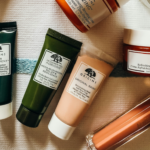I’m officially disqualified from Dad of the Year consideration again.
My 6th-grader couldn’t log into a classroom app because it flagged her last name as obscene and apparently the teacher made quite an ordeal about it. Poor kid.
All I can do is say I’m sorry.
My dad always taught me that good offense was the best defense. I knew more Dick-related humor by the time I was 10 than Eddie Murphy accumulated in his entire career.
It would go something like this:
Them: “Hey John, is your dad’s name, Harry?”
Me (deadpan): “No, it’s Isaac.”
They would stare, blankly, as the joke flew over their head. Inevitably, they would mumble it to themselves – like you just did – and the tables turned. I had a million of those. By the time I rattled off several of them – “And, no, my mom’s name isn’t Anita” – everyone moved on.
Incidentally, my mom’s maiden name is Harden and you can’t make that up.
When all else failed, I have a couple of once-broken bones in my right hand and a scar on my forehead from resolving the matter through less peaceful means. Win some, lose some.
I often embraced it (pun not intended, I swear) as I got older, using the name to my advantage, like when plotting a run for Greek President in college. “If you think all candidates are the same, you don’t know Dick.” Or, “The women of Alpha Beta Gamma love…” Well, you get the idea.
It reemerged (stop it) when Tara was pregnant and we started researching baby names. You can’t imagine the long list of girls’ names we had to banish – not including names like Candy, Crystal, or Aida that we wouldn’t have considered anyway.
Now, we’re in a new phase, as our girls embark on life. Maybe it’s generational but my kids are too compliant to rattle off Dick-isms in a crowded lunchroom or punch someone in the face to play defense. I just have to hope it makes them stronger in the long run.
For me, I feel like it’s been a net positive. People certainly remember my name. And, I just got to regale you with a veritable bouquet of Dick jokes and you’re not even allowed to be offended. That’s worth something, right?
Here’s what we’re seeing this week:
Information inequality is the evil younger sibling of income inequality. If you don’t read Sara Fischer from Axios, you’re doing it wrong. Her piece this week about the threat of “media haves and have-nots” reinforced one of the most troubling trends we’ve seen in our data over the past seven years. As more and more journalism moves behind paywalls, quality media is landing on the screens of the most educated and higher-income consumers – leaving sketchy, programmatic-ad-supported content for everyone else. We’re going to publish a ton of new research on this topic in the coming months but for now, just know that the percentage of people who are willing to pay for digital content is small and barely growing.
A lot of people are okay with genetically modifying human embryos to prevent diseases. A researcher in China was recently able to “edit” the DNA of two human embryos to render them HIV resistant, using a controversial technology called CRISPR. We asked the American populous what they thought and the results were surprising – to me a least. 43% of Americans are okay with the practice, if it’s focused on mitigating a child’s chances of disease or defects. 24% would support the practice to prevent obesity and 27% to prevent addiction. Things changed dramatically when we asked about altering things like skin, eye color, height, or gender. Nobody wants that. The write-up is pretty thought-provoking if you want to give it a look.
The more people travel out of town for business, the happier they are. Also, you should never confuse correlation for causation. Check out the chart below. As a frequent business traveler myself, this seems counterintuitive – because flying commercial sucks, missing my kids sucks, and restless sleeping in hotels sucks. Maybe it just means those business travelers have better, higher-paying jobs that make them happier in other ways (that’s my theory). Or maybe, those out-of-town travelers are leaving a non-traveling spouse at home to deal with the kids and responsibilities all by their lonesome, making the non-travelers less happy as a result. Or do people actually enjoy skipping town? What do you think?
I’m definitely not surprised that people who use social media the most are also the most likely to wear perfume or cologne. Still, it’s a useful data point if you’re a marketer for a fragrance brand or somebody at Facebook trying to sell ads to those marketers. I’m in the 1/3rd of U.S. adults who never wear any kind of fragrance and so far nobody has complained to my face about it. But a bunch of people do, including 25% of Americans who spritz themselves every day. One interesting statistical nuance in this research is that fragrance-wearing peaks during our date-chasing 20s, then drops quickly in our 30s, only to bounce back up again in our mid-40s. Are these all divorcees getting back in the game? I hope I never know.
We always put up a live Christmas tree in our house but apparently, we’re in a small minority. Lots of cool holiday decoration stats here. I just didn’t realize that fake Christmas trees were 3X more prominent than real ones. Or, that most people unplug their tree lights when they leave the house. I don’t even know you anymore.
Here were our most popular questions this week:
Hoping you’re well.
JD








